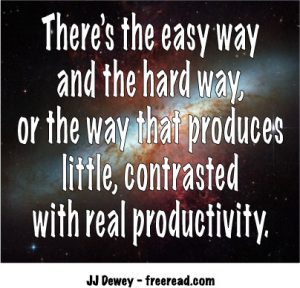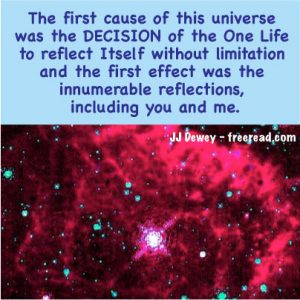Nov 1, 2016
The Overshadowing Examined
I posted an article from the archives on the Overshadowing of Jesus in a couple spiritual groups and am getting some feedback on it Here is one from a reader named Daniel:
Daniel
I don’t see why it is necessary to assume that the Father Jesus talks about is other than the Atman, to which he, the Jiva, is connected. Or that his Father in Heaven is other than the Brahman or parent Intelligence, which is the Father to the Atman. The Atman or real Self, the thread of knowledge on which the Jivas lives are strung, and the Jiva, or Soul, are one being.
What you are talking about Rudolph Steiner also claims, although he says that Jesus was the reincarnation of Zarathustra. The Pistis Sophia also claims something similar, that a cosmic spirit was a walk-in so to speak, and worked through Jesus. However, I see no reason to believe all this, as it seems perfectly feasible that Jesus as the Jiva or Doer incarnated fully the being of the Atman, overcame death, and through his sacrifice, which perhaps had to do with laying down his Life for mankind, not merely his physical appearance, became an Intelligence or Brahman.
JJ
The Atman is a higher part of himself. If he were just talking about a part of himself he wouldn’t have had to speak of another individual which was in him which and was greater than himself. The Atman would not have descended as a dove and abide in him as it already was with him.
Daniel:
There is an area within the brain which when light-filled has the shape of a dove. It would not be necessary to take the scripture literally but esoterically here.
JJ
I’m not sure what part of the brain you are referring to that has the shape of a dove, but if it exists I see no reason to associate it with the baptism.
Nothing I said would indicate a literal dove descended as this is not even indicated by a literal interpretation of the scripture which says:
“and he saw the Spirit of God descending like a dove, and lighting upon him”
So even taking this literally it appears the descent of the spirit was merely gentile like the descent of a dove.
Mark gives a similar rendition but Luke words it a bit differently:
“And the Holy Ghost descended in a bodily shape like a dove upon him,” Luke 3:22
Some interpret this to mean that the spirit was in the shape of a dove but that is not what it says. The first part of the sentence says he “descended in a bodily shape”. If John saw the shape of a body he would have seen a human form and the second part of the sentence says this entity descended like a dove. In other words, this entity descended with gentleness like a dove and entered into Jesus fulfilling the word to John which reads:
“And John bare record, saying, I saw the Spirit descending from heaven like a dove, and it abode upon him. And I knew him not: but he that sent me to baptize with water, the same said unto me, UPON WHOM THOU SHALT SEE THE SPIRIT DESCENDING AND REMAINING ON (Can be translated IN) HIM, THE SAME IS HE WHICH BAPTIZETH WITH THE HOLY GHOST. And I saw, and bare record that this is the Son of God.” (John 1:30-34)
Daniel:
On the other hand the full incarnation or descent of the Atman into the body, which is not in the body but only contacts it via certain nerves and the pineal, is what makes the body immortal, changing it in the twinkling of an eye.
JJ
And you think this because? How are you defining the Atman? I assume you are referring to the Higher Self. In Theosophy the Atmic is the consciousness of the third plane, the Monad being the second. Which school of thought are you following?
Jesus did not obtain immortality at the baptism but took the first major step at the transfiguration.
The union of the Higher Self with the personality is an essential step to overcoming death, but there is more.
Daniel
Jn 8:29 And he that sent me is with me: the Father hath not left me alone; for I do always those things that please him.
Jesus speaks of the Atman as within him, above him, and as one with him.
JJ
Once union with the Higher Self is accomplished the disciple does not think of himself as two separate beings, but one whole unit. On the other hand, with a divine overshadowing the experience would be the sensing of a second actual entity, not just yourself.
Daniel quotes this scripture:
1 Cor 6:17 (NIV)
17 But he who unites himself with the Lord is one with him in spirit.
JJ
No argument with the kingdom being within or that we need to raise our consciousness to recognize oneness with God from whom the spirit of life flows through all things.
Daniel
Joseph Smith points out in D&C two fathers are meant, the Atman, who is the Father, and Brahman, the Father in Heaven, otherwise he would not have distinguished my Father and my Father in heaven.
JJ
Joseph Smith never used the Hindu terms though he did present the idea of a universal God and another of a personal one.
Indeed there is the One Great Life in whom we live and move and have our being and there are masters the Bible calls Eloheim who are such advanced beings that many call them Gods.
Have you read any of the Alice A. Bailey writings?
The article under consideration may be found here:
https://freeread.com/archives/283.html
Nov 2, 2016
Overshadowing Dialog
Daniel responds:
I don’t see any reason to accept this interpretation of yours. Young’s literal translation gives the following for this passage:
Luke 3:22 Young’s Literal Translation (YLT)
22 and the Holy Spirit came down in a bodily appearance, as if a dove, upon him, and a voice came out of heaven, saying, `Thou art My Son — the Beloved, in thee I did delight.’
That makes it clear that the appearance was that of a dove, not that it descended gently like a dove. What I indicated was that this appearance as of a dove was possibly what those who witnessed experienced astrally,
JJ
Young’s translation gives no difference in meaning than the King James. I also read it in the Greek and there is no additional clarification. The fact remains that something was “as if a dove.” It is not clear whether it is talking about the way it descended, its appearance, or both. The versions in Matthew and Mark, which have an earlier origin do not mention any bodily appearance but only the dove-like descent:
“and he saw the Spirit of God descending like a dove, and lighting upon him” Matt 3:15
Only John and Jesus are recorded as witnessing anything unusual happen, so it is unlikely they saw with the illusion of astral vision, but sight from the higher mental. We have no record of how the vision was originally conveyed to disciples, but since Mark and Matthew are the earliest versions they are likely to be the most accurate. Scholars have often accused the Luke version of embellishment. It is likely that the author of Luke had the Matthew or Mark version in his possession and made the leap of assumption that an actual dove was seen and reworded it to fit his interpretation.
That said… Let us suppose that they did see the entity descend not only gently like a dove but also saw what appeared to be the shape of a dove?
Does it prove that the dove represented the Higher Self and not another advanced entity?
No. It makes no difference.
If the scriptures are accurate we do know this for sure. Both John and Jesus witnessed a spirit descend upon him and it remained with him. The fact that it remained with Jesus was a sign to John that the Son of God was on the earth among men.
I asked Daniel which school of thought was related to his ideas and he stated that he was influenced by Harold Percival, an early Theosophist, and his main work called, “Thinking and Destiny.”
I have this book and have read it. I think it is a fairly interesting, restating many basic truths that are in harmony with most spiritual seekers. He does give out quite a few fairly controversial pieces of data that few can verify true or false. The main thing that seems to set him apart from other Theosophists is his emphasis on physical immortality, which is unusual.
He also uses a different selection of terms than other theosophical related writers. His teachings of the Triune Self is a good example. He calls the lower personality the “Doer,” or “God the Son.” The soul, or Higher Self, he calls “God the Holy Ghost” or “the Thinker.” Then he calls the Monad “God the Father” or “the Knower.” Once a reader understands his terms his writings are easier to follow.
Daniel seems to think that Percival’s teachings would discount the possibility of an overshadowing of Jesus by an advanced entity, but I can’t find anything in his teachings that would do this. As far as I can tell he makes no mention of the overshadowing principle one way or another and doesn’t give any significant details of what happened to Jesus at his baptism.
I asked him if he had read Alice A. Bailey. To this he answered:
“Yes I have read a number of her works, and I own her entire library, which I purchased at the Bailey center in London. However as I said I am more interested in the Master she mentioned there in New York in her autobiography.”
JJ
Well, Daniel, I think you ought to dust off some of those books and delve into them again as they have many profound insights not found in Percival’s books and contain many comments and teachings about the overshadowing of Jesus by the Christ who is the head of the spiritual hierarchy. I had difficulty in accepting it the first time I read it, but have received confirmation that it is true.
I didn’t recall Alice A. Bailey teaching about a master in New York but after contemplation I figured you were talking about this statement by her:
“A few years ago a very dear friend and a man who had stood very closely with Foster and me since the inception of our work – Mr. Henry Carpenterwent out to India to try and reach the Masters at Shigatze, a small, native town in the Himalayas, just over the Tibetan frontier. He made this effort three times in spite of my telling him that he could find the Master right here in New York if he took the proper steps and the time was ripe.”
Unfinished Autobiography, Page 165
I would guess that you think the master she was referring to is Harold Percival himself, but it is obvious she was referring to the master Djwhal Khul who Bailey contacted while in New York through telepathic means. Her point was that you can contact the Masters from anywhere in the world if your consciousness is ready.
Obviously Percival was not a master as he died at a pretty standard age of 84. A Master can extend his life indefinitely and he taught that a master would obtain physical immortality.
Nov 2, 2016
Assessing Truth
Thanks for your reply.
There are two problems in reaching agreement with you.
(1) You seem to have a black and white approach to interpretation.
(A) For instance, on the dove argument you see only one possible interpretation and such interpretation is not verified by any esoteric teaching including Percival
I, along with many Biblical scholars, see two possible interpretations. One is the possibility that an actual form of a dove was seen or the other is that the Spirit descended gently like a dove.
(B) You interpret the Bailey reference to meeting a Master in New York as only being possible in the physical and do not seem to see that there are two ways to interpret it. Obviously she could have been referring to meeting him as a spiritual non physical presence. Even if Percival was a master living in New York does not discount either interpretation. I know of no record that she met Percival and can find no mention of him by her.
For two seekers to reach agreement the two have to see both sides of the argument and the possibilities of each. If this does not happen then little progress toward union will be made.
(2) Since we are in this world of form we need to use some type of reference material as a base. Now that base does not have to be seen as perfect or infallible but should be seen as basically true within the field of human limitations.
From your words you seem to accept both Percival and Bailey as pointing the right direction. Yet you are quite selective in what you accept. For instance, you accept without question any vague hint in the Bailey writings that Percival was a master yet you completely reject DK’s clear teachings through her on the overshadowing. What is significant is that the overshadowing of Jesus by the Master of Masters, the Christ, is one of his most significant teachings and was not briefly hinted at but explained in detail over and over.
If both DK and Percival were masters and DK was a Grand Canyon away from the truth here then something is terribly amiss in the spiritual hierarchy.
On the other hand, if the Percival writings were inspired then they do not discount the overshadowing of Jesus. If he was correct that Christ was a “Brahman or the Light to us directly” then that would be describing the entity that co-occupied the body with Jesus.
You seem to have a take on things peculiar to yourself that is shared by no one else I know and which is sometimes contradictory to those you claim to accept as masters.
You write:
“As for Percival being a Master having met him that is not a question for me. His death at 84 is a year later than that of Buddha, who also did not leave the desire centers of men so that he could work with them. And who also did not overcome death. So unless you do not consider Buddha a Master, or you consider DK to be more developed than Buddha, your argument that this is proof he was not a Master founders.”
JJ
Buddha lived in an age before the Christ set the standard of mastery over death. Most of the masters since then have extended their lives in the physical body, though if such a being could finish his mission in a standard lifetime he could indeed die at a standard age and prepare for yet another incarnation.
I find it interesting that when a guru dies that his followers attribute supernatural qualities to him. Instead of being just dead they usually say he “ascended,” or something of the sort. Most of these were just mere mortals.
So how do I assess Percival?
The Masters are called Masters of Wisdom. If one calls Percival a Master I would say he should be called a Master of delivering creative data, but do not see a lot of wisdom revealed. I can’t find any principles on which he has shed additional light and principles are the language of the soul.
Wisdom cannot be fabricated but can only be presented by a high intelligence whereas much unusual and improvable data can be conjured up by anyone with a good imagination.
Overall I would say that about 75% of his writings are true when you understand his terminology. 15% is questionable but is worthy of consideration, and 10% just doesn’t register with my truth detector.
I’m surprised you give so much weight to a book written by Bailey herself, “From Intellect to Intuition” which isn’t nearly as enlightened as those from DK.
Here is how I would relate the writings.
DK writings through Alice A. Bailey I would give a 10, the highest on the planet.
I would give Bailey’s own writings around a 4 and Percival and Steiner’s a 6. Both of them present a lot of interesting, but difficult-to-verify data, while short on wisdom and principles.
I’ll take a look at those additional Percival writings you referenced.
Nov 4, 2016
More Dialog
Daniel:
There is simply nothing in that passage (Lk 3:22) that, to me, indicates what was meant was a human form descending gently like a dove. My interpretation of it as perhaps being an esoteric indication of the light shape in the head is only a guess, and is itself a bit of a stretch. What I am saying is I see nothing that indicates that some shape other than that of a dove seemed to descend, and certainly not that of a human form. That you can have another opinion than mine does not make them equal, nor does it make me inflexible. In this case you are arguing for your view by attacking the person (ie, ‘you have a black and white approach’), and not the substance of the ideas. That is a fallacy, as is an appeal to authorities who agree with you about this human form descending, but who are not cited. I suspect such authorities are Mormon, as I have never heard this notion in mainstream Christianity which I think would explicitly deny that God descended in a human form upon Jesus.
JJ
I am not attacking you but just noting your approach which is that there is only one interpretation possible, which, by the way is similar to the Mormon one, that a dove was seen.
Speaking of Mormonism Percival sounds like he has had some Mormon influence. Do you know anything about that? Also I notice you mentioned Joseph Smith. Do you have a Mormon background?
I can see where you get your view but you do not seem to see where I get mine. For two to have a useful argument they each need t look through each other’s eyes and if there is more than one plausible interpretation possible both need to be seen.
I am not interested in black and white vs black and white but reason added to more reason and light added to light.
I am not alone in seeing some flexibility of interpretation here with Luke 3:22. A number of Bible commentators see possibilities beyond the actual form of a dove descending:
Ellicott’s Bible Commentary:
“In a bodily shape.—The words are peculiar to St. Luke, and tend to confirm the traditional symbolism which finds in the dove the emblem of the Holy Spirit. They, at least, fall in naturally with this view; but the other construction, that the Holy Spirit descended, after the manner of a dove, first hovering and then resting, in a bodily form (undefined) of some sort, is, at least, not excluded.”
Gill’s Exposition of the Entire Bible
“like a dove upon him; either in the form of a dove, or this corporeal form, whatever it was, descended and hovered on him as a dove does:”
And this from a blogger:
“However, I believe the Holy Spirit does not look like a dove any more than Jesus looks like an actual lamb. I believe that when Scripture states it was “like a dove,” this expression describes the manner of the descent, rather than the bodily form. So another way to phrase this would be “while He was praying, heaven was opened, and the Holy Spirit descended upon Him like a dove. He was in bodily form.”
Actually Matthew records it more like this in his gospel. He states: “After being baptized, Jesus came up immediately from the water; and behold, the heavens were opened, and he saw the Spirit of God descending as a dove and lighting on Him, and behold, a voice out of the heavens said, “This is My beloved Son, in whom I am well-pleased.” (Mat 3:16-17)
How does a dove descend? It descends different than other birds. Perhaps we could say it hovers, floats downward, rather than swooping down to kill its prey as a an eagle, or circling overhead like a vulture, or flitting about recklessly like a bat. I believe there was a smooth, steady, deliberate, innocent, pure, and harmless manner in which the Holy Spirit descended on our Lord that can only be compared to the beauty of a white dove descending. Matthew says, “descending as a dove and lighting on Him,” indicating that the Holy Spirit came to rest and remain upon Him in the same manner as a bird would light upon Him or land on Him.”
http://spiritofthelordgod.blogspot.com/2013/10/the-bodily-form-of-holy-spirit.html
I can see why some may think an actual form of a dove was seen, but can also see why others see it as a mere descent as a dove.
My point is that if two sides of an argument are possibly true, why not acknowledge it? Without such give and take then no union of thinking is possible.
We have this same problem in interpreting Bailey’s words about seeing a master in New York. You say:
“Once again, arguing that I am inflexible because I don’t agree with your interpretation is not a legitimate argument.”
You totally miss my point here. I have no problem with you not agreeing with me. I am saying that you are only seeing one possible interpretation to her words where various readers may take it two different ways, just as with the dove analogy.
You seem to see things that give surface indications that verify your thinking and you take them to be solid irrefutable evidence, which they are not.
An argument doesn’t have much value when each side just wants to prove the other wrong, but can have value when each seeks to see through the eyes of the other and steps are taken toward seeing the truth as one.
I can see both sides here. It is possible that Bailey thought Percival was a master incarnate, but also possible she did not. Unless one gets a revelation on it there is no way to know for sure, but you have presented circumstantial evidence, not proof.
The important thing is to study Percival’s works through the light of the soul and come to one’s own conclusions without the interference of an outside authority.
You would think though that since Percival put so much emphasis on the idea that a master would overcome death that he would have at least extended his own life to demonstrate his core teaching.
I agree with you that Jesus was not the first to extend his life, but believe he was the first to demonstrate power over death in such a dramatic manner in that he was put to death and rose again. I do not know of any record of a master dying at a normal old age and being buried since the time of Jesus.
Concerning overshadowing, the term is not normally used with a union with a higher part of yourself. This is more of a union than an overshadowing. An overshadowing or divine possession comes from an interplay of two individual entities, something you seem to reject as a possibility.
You indicate you have seen Percival. Did you have a vision or were visited by him?
Copyright by J J Dewey
Easy Access to All the Writings
For Free Book go HERE and other books HERE
JJ’s Amazon page HERE
Gather with JJ on Facebook HERE







